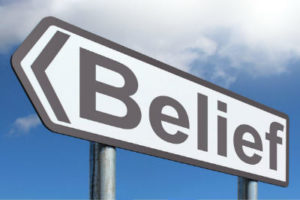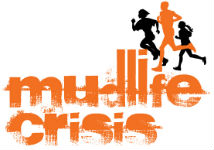
As many of you know, I have a couple of teenagers in the house. And a common theme among teenagers, it seems, is the search for who they are. Everyone likes to belong to something, and many people do it via beliefs about who they are – and teenagers, as developing adults, are on the search for this in a big way. It’s truly the search for what our purpose and place in the world is going to be, and that’s perfectly okay. But… what happens when that place in the world isn’t serving you and who you are? It’s time to talk about beliefs and when/how to dismiss them.
So here’s an example. Let’s say you’re a person who says “I’m always cold. It’s just who I am.” And winter rolls around, like it soon will here in Columbus – dipping into negative degrees, the wind-chill factor pushing it even further down. And your response is to wrap up in blankets, crank the heat, and complain to the world about how cold is the devil and you can’t wait till summer.
Well, that’s a belief that isn’t serving you. It’s getting in the way of you enjoying your life, and experiencing this world to the fullest. Or let’s say you’re a person who’s always struggled with finances – money has always been tight for you and you just feel like you’re never going to get out of the debt hole. So you complain and rant about how the system is unfair and you’re being kept down by the man.
Again – a non-serving belief. You’re letting an identity define who you are to your detriment. And I get it. It’s tough to break through those beliefs about ourselves. They’re who we are, they’re who we’ve announced ourselves to be to the world. There’s a whole lot of ego wrapped up in that – not just in the way we define ourselves to other people, but in the way we define ourselves internally.
Here’s an interesting exercise to do, one that I got from my mentor JB Glossinger of MorningCoach.com. Sit down for five minutes with a pen and paper, and using the phrase “I AM,” write down all the ways in which you’d describe yourself. For example:
- I AM a man.
- I AM a husband.
- I AM a father.
- I AM an obstacle course racer.
- I AM a college graduate.
- I AM a Paleo diet-er.
- I AM smart.
- I AM a bicyclist.
- I AM a computer programmer.
- I AM a blogger.
- I AM an ice-cream lover.
- I AM almost 50 years old.
You get the idea. Write down all the ways in which you’d describe yourself, good or bad.
Then, sit back and read that list carefully. Think about which beliefs (because that’s what most of these are, beliefs) serve you and which don’t. Which beliefs are getting in the way of your prosperity? Which are getting in the way of your health improving? Which are getting in the way of your happiness?
And it’s important to question every belief you have in this regard. Any belief you have about yourself can have a positive or a negative effect on your psyche.
Let’s say one of your I AMs is “I’m a church-goer.” Does the church you go to make you feel good about yourself and your choices? Do the people there make you feel good about yourself, or do you feel guilty? Does the preacher empower your thinking, or does he/she make you feel negatively about yourself?
It also helps to do this exercise periodically to re-examine your life and your beliefs. Your beliefs can change over time, obviously, but the effects of your beliefs can also change over time.
For example: let’s say one of your I AMs is “I AM a vegan.” Is that serving you? Is your health good? Do you feel vital and strong all the time? Are you getting cravings for meat, even though you’ve been told by the world that your way of eating is more healthy and good for the environment? Are you feeling as good now as you were during the first month of trying this diet?
Or, let’s go back to my list at the top. One of my I AMs was “I am an obstacle course racer.” Obviously, that sounds great. But what if I’m starting to get injuries more often? What if my drive for OCR success is taking away from other priorities in my life – such as my marriage or my family happiness? Every belief we have about ourselves needs to be examined.
Or what if being a Paleo dieter becomes an issue for me – what if there’s some nutrient that I’m not getting in my particular take on the Paleo diet, and its lack is starting to have an effect on my health. For example: I’ve found that I sometimes sleep better at night if I have a bit more carbohydrate at night than I do during the rest of the day, for example: not something that a low-carb Paleo eater might want to believe about themselves if they’re put too much of their identity into that belief.
Dietary changes can be especially troublesome – there’s so much identity that goes into our dietary plans, but let’s face it: our bodies do change over time. Let’s say you used the high-carb/low-fat diet to lose a ton of weight. But now that you’ve taken off the weight (and some people do, with this diet) you find that you’re experiencing a lot of brain fog from too many carbs. Is being on this diet serving you any more?
Now let’s look at that bottom one. I’m hitting a fairly big milestone birthday this year – that’s right, I’m hitting the big five-O. 50 years old. And… I’m sort of trying to put that together. 30 was no big deal. 40 was slightly more of a deal, but still I didn’t really feel anything from hitting that age.
But 50. Wow.
50 is sort of that age where you can’t really hide that you’re aging any more. I’m definitely greyer than I was at 40, particularly in my beard. And it’s taking longer to recover from stuff to a certain extent. Post-race soreness lasts an extra day or so.
But… The one place I really don’t feel 50 is in my head. I still feel young. I still want to learn stuff. I don’t like feeling like an old curmudgeon. As people my age start getting more set in their ways, I sort of feel like I’m branching out more and more.
And I think that comes from my constantly testing and asking myself who I think I am. I don’t think I’m an old curmudgeon. I want to get out and do things. I feel more open-minded and ready to absorb new ideas and new concepts than I ever have.
And part of that probably comes from my being a Rebel, a la Gretchen Rubin’s Four Tendencies. But mainly it’s because my 50 years of life have proved one thing to me:
If we stop moving and learning, we start dying.
I am still running and jumping and having a great time, and I’m nearly a half-century old. And I chalk that up to the fact that I never really STOPPED running and jumping and having a great time.
I’ve also learned via reading all sorts of topics and thrusting myself into the world of health, fitness, nutrition, biohacking, and more that the major reason we feel we’re aging is that our treatment of ourselves is catching up. Whether it’s eating poorly for years, not working out productively by focusing on one sport or one methodology too much, being afraid of nature, and a whole host of other stuff that is TOTALLY conquerable, that stuff does tend to come to a head sometime around this age. For some it’s earlier, for some it’s later.
It hasn’t really come for me yet, though. And I attribute that to my adherence to MovNat and other full-body natural movement work, the Paleo/Primal diet I’ve followed for years, my following the Wim Hof Method regularly, and other factors that thrust me into a natural way of living and lets my body thrive.
And a lot of that comes from thrusting aside old beliefs – beliefs about exercise, about eating fat and/or carbs and sugar, about exposing myself to nature, and more. I discovered that a high-carb/low-fat diet that I’d adhered to for years wasn’t working. I stopped lifting weights and running the treadmill at the gym and got into bodyweight exercise (and later MovNat). I stopped avoiding cold water and began to embrace it – taking cold showers nearly every morning.
And I feel great. Do I have other changes to make? Probably. It’s gonna take some human guinea pig work to figure out, but I’m okay with that. It’s fun and I learn about myself.
And as I get older and keep putting off aging, I can be an example for my family, showing them that while getting older is mandatory, aging is optional.






